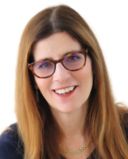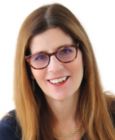Environment
Can We Teach Diversity Without an Agenda?
A new approach to teaching and researching diversity.
Posted August 22, 2019
On a recent podcast with the Harvard Extension Career & Academic and Resource Center, I talked to Chris Davis, Associate Director. During the conversation we were able to distill the essence of the course I teach The Psychology of Diversity and my upcoming book "The Science of Diversity" to be released soon by Oxford University Press.
I've been teaching and doing research at Harvard and Northwestern for a long time. And I've discovered that learning is much more fun and exciting when it's not just focused on entering information into a student's head, so-to-speak, but rather when there is an interactive learning environment. What I love about teaching and doing research is that I'm learning all the time too.
I think that's part of the discovery process and that's what science is all about; the name of the book is "The Science of Diversity" and I think science as a world view means that you are always open to being wrong, and thinking hypothetically, and being disproved. A scientist is not really attached to a hypothesis. So that's something I try to practice and convey in my teaching. And my way of doing research is very much based on this scientific way of thinking.
During the podcast conversation, we also talked about the research process behind my new Oxford University Press book "The Science of Diversity"® and what collaborative research looks like with the Harvard Faculty Research Aides that have helped with the research and other aspects of the book. For instance, when writing the book I may have thought I had a good idea of what to include in a PowerPoint slide and someone on the research team might say, “I don’t think so!” And likewise, I may have come up with some data that show that what we were thinking about is completely incorrect and so we would change directions. In short, we worked as a collaborative team with mutual respect and paid close attention to the data.

Also, during the podcast conversation, Chris asked questions about the Psychology of Diversity course that I teach at Harvard Summer and Ext School. So I explained that people often assume when you say the word "diversity" that you have some agenda. Usually, it is a more liberal agenda of embracing diversity. There's usually some assumption that there's a positive belief attached to the idea of promoting diversity.
But the entire course The Psychology of Diversity and my book takes the viewpoint of not having any agenda.
I do not promote an agenda, neither a liberal one nor a conservative one. Science at its ideal self is exactly that. Science means you're discovering, there's no agenda, you are not setting out to prove something, rather you are setting out to learn something. And so that's what my course and the new book is all about.
Copyright © Mona Sue Weissmark All Rights Reserved
Watch the podcast conversation here.
References
Weissmark,M. (forthcoming). The Science of Diversity. Oxford University Press, USA.
Weissmark, M. (2004). Justice Matters: Legacies of the Holocaust and World War II. Oxford University Press, USA.
Weissmark, M. & Giacomo, D. (1998). Doing Psychotherapy Effectively. University of Chicago Press, USA.


